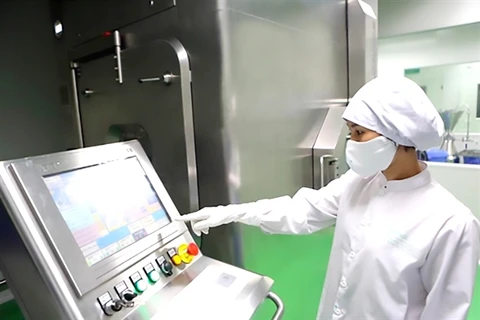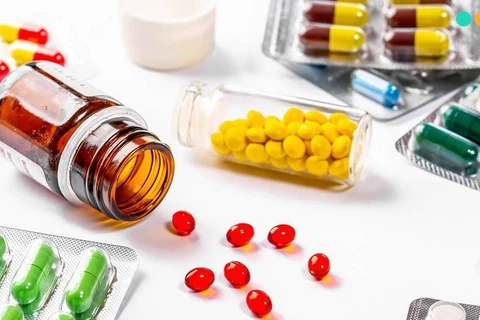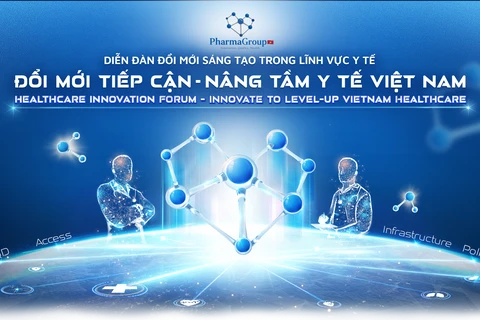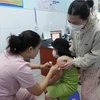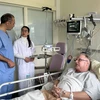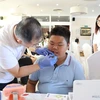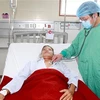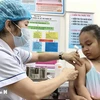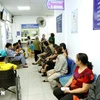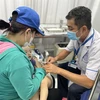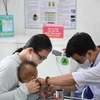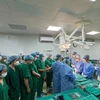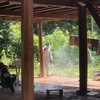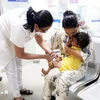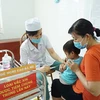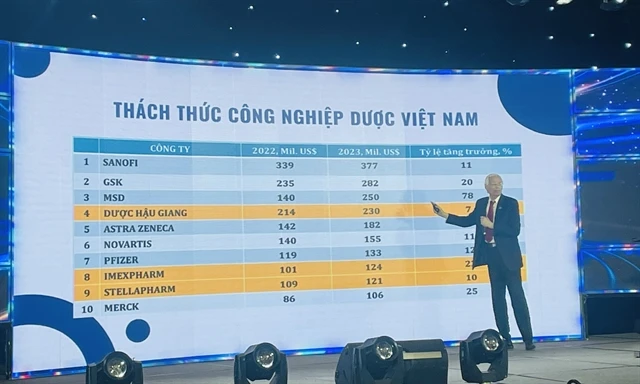
Hanoi (VNS/VNA) - Vietnam's pharmaceutical industry still faces many challenges and difficulties in the context of increasingly deep integration with the world, heard a seminar in Hanoi.
The seminar, entitled 'Vietnam pharmaceutical industry and the journey to participate in globalisation', was jointly organised by the Saigon Economic Magazine and Newtechco Group.
Speaking at the event, Associate Professor, Dr. Le Van Truyen, former Deputy Minister of Health, said that Vietnam's drug market reached about 7 billion USD in 2023, while average consumption was at 70 USD per capita, ten times that compared to 2000.
"Our country's pharmaceutical industry has had a high growth rate in the past 10 years with a compound annual growth rate of 7.3%. However, the pharmaceutical industry is still facing many challenges and difficulties, as Vietnam's context is increasingly integrating deeply with the world economy," said Truyen.
The first challenge of the domestic pharmaceutical industry is that the material-technical-technology base is still low. Vietnam currently only has 17/250 factories achieving advanced GMP (EU, PIC/S, JAPAN, TGA). More than 200 factories meet WHO and GMP standards, but no factory has been pre-qualified by WHO (WHO pre-qualification), according to Truyen.
"Pre-qualification is an important step. With this certificate, Vietnamese drugs, such as HIV drugs or malaria drugs, will have the opportunity to bid and supply drugs for WHO programmes around the world," he said on July 31.
He added that Vietnam does not have concentrated pharmaceutical and bio-pharmaceutical industrial parks with an ecosystem including research and development centres, bioequivalence and bioavailability testing, clinical trials and pharmaceutical and packaging factories.
Regarding financial capacity, most domestic pharmaceutical companies are small in scale, have low sales and do not have national-scale pharmaceutical corporations. Besides, digital transformation is also a big challenge for many pharmaceutical businesses.
Associate Professor Truyen predicts that the change in pharmaceutical market structure from chemical drugs to biological and biosimilar drugs will accelerate rapidly in the coming years. Due to population ageing and shifting disease patterns, these drugs will account for about 40% of the global and Southeast Asian pharmaceutical market.
Therefore, Vietnam needs to make efforts to improve research capacity and technology application in drug production, aiming to become a centre for manufacturing, processing and technology transfer; and proactively produce specialised drugs, special treatments, new drugs, original brand name drugs, vaccines and medical biological products.
Truyen suggested that each business needs to consider, adjust and change its medium and long-term development strategy to suit the State's guidelines and the international and domestic business environment, thereby improving the competitiveness of Vietnam's pharmaceutical industry.
According to Vice President of the Vietnam Pharmaceutical Business Association Tran Thi Thu, Vietnam's pharmaceutical industry, is a key industry and needs to focus resources on promoting development.
On October 9, 2023, the Prime Minister signed Decision No. 1165/QD-TTg, approving the national strategy for developing Vietnam's pharmaceutical industry for the period to 2030 and vision to 2045 to develop Vietnam's pharmaceutical industry on par with advanced countries in the region, ensuring people have access to medicine at a reasonable cost.
Domestic businesses need to take advantage of internal resources to thrive. Small businesses should focus only on key products, avoiding duplication with other businesses that have strengths and more modern production lines, according to Thu.
“Newly established businesses/EU-GMP businesses can target the ETC market segment (drugs distributed to hospitals), with specialized drug products, specialised drugs, generic drugs, vaccines and biological products and medicinal ingredients,” added Thu.
She also suggested that businesses should take advantage of FTAs to cooperate with foreign investors, thereby producing pharmaceuticals with high technical content.
President of Newtechco Group Vo Thi Tuan Anh said that in the context where most pharmaceutical enterprises have low financial potential and scattered resources today, building an ecosystem from product research, applying new technology to the production of pharmaceutical products and developing widespread distribution channels is essential.
Accordingly, the group has devoted financial resources and invited international investors and technology experts to invest in the pharmaceutical and biological industrial park project in Thai Binh province.
This will be the first project in Vietnam dedicated to the development of the pharmaceutical and biopharmaceutical industry, a gathering place for experts in biotechnology and pharmaceutical chemistry, production investment, technology transfer, training and incubating start-up businesses in the Vietnamese pharmaceutical and biopharmaceutical industry./.
